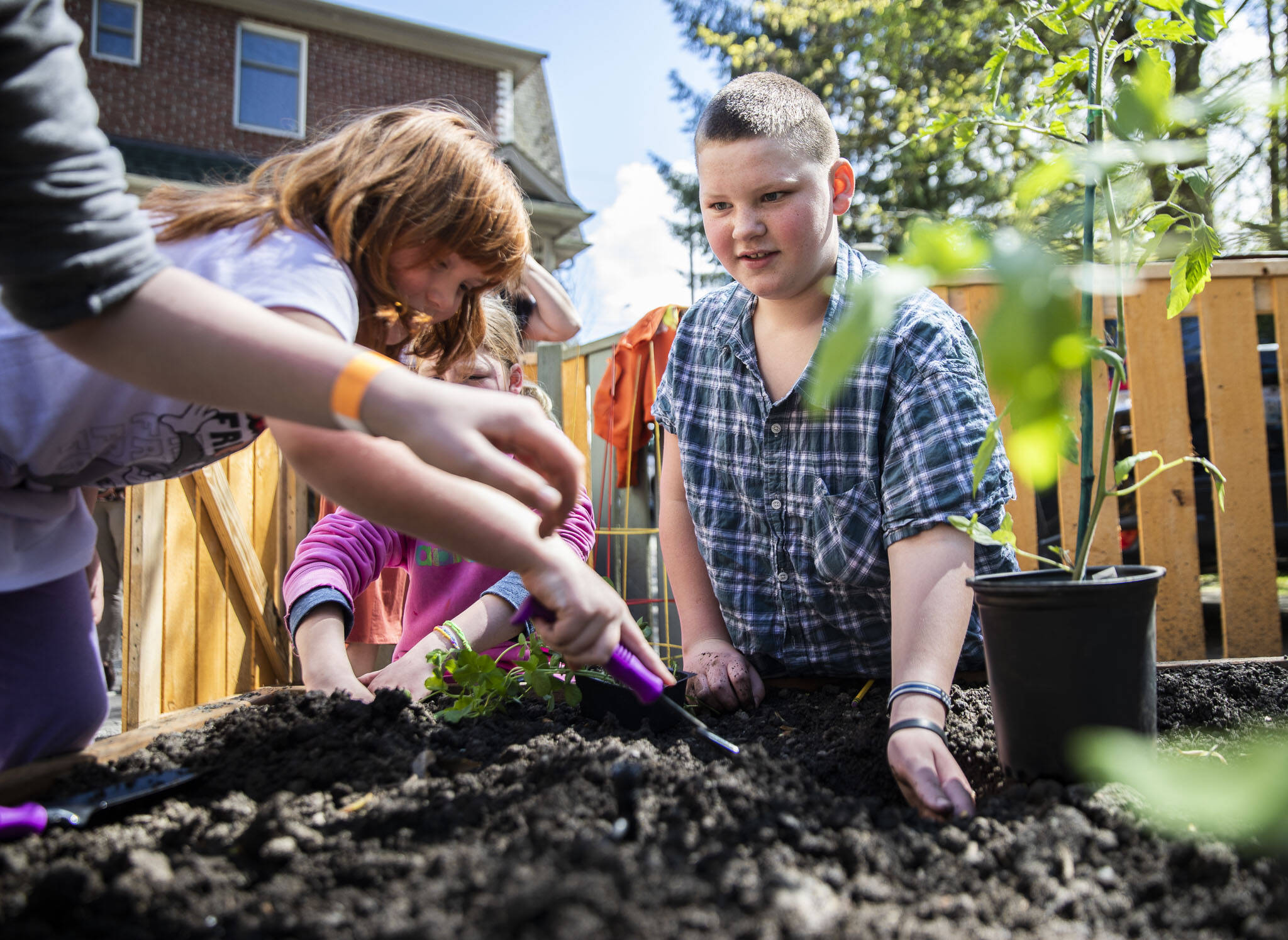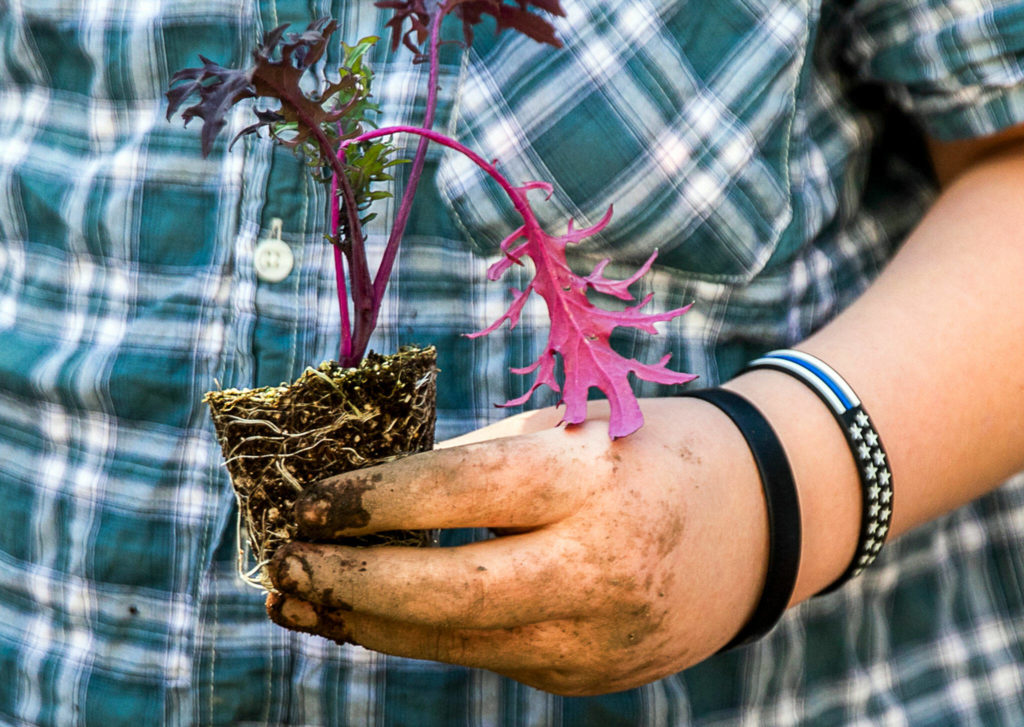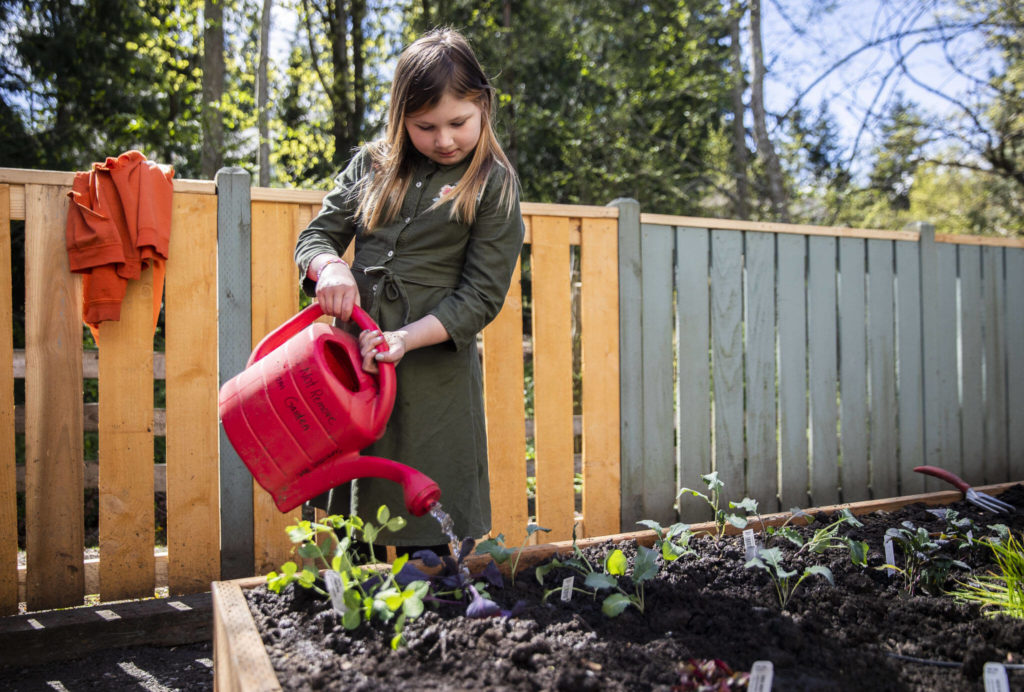EVERETT — Brennan Dreghorn, 8, spent last Friday afternoon planting tomatoes, lettuce and sugar snap peas. It was Brennan’s first day in the new garden and outdoor classroom at Tomorrow’s Hope Child Development Center.
“This is one of the first times they have gotten to get out and in the dirt this year,” Tomorrow’s Hope trainer Amanda Slingluff said. “They’re really excited.”
Students celebrated the garden’s grand opening on Earth Day in Everett. Tomorrow’s Hope Director Mandy Cheever said the center plans to use it as an outdoor classroom to teach lessons in science, nutrition and sustainability for pre-K and school-aged students up to 12.
“They’ll also be working on their fine-motor skills with their hands, getting in there and planting with the dirt,” Cheever said. “They will be learning cooperation with other students. There are a lot of things we can work on in an outdoor classroom with them.”
Landscapers from GroundWorks spent a week building the garden in an area previously used for storage. They removed weeds and garbage, and designed and built raised garden beds, GroundWorks Director Jim Gabriel said.
“This garden area has been an (eyesore) for a little while,” Gabriel said. “We wanted to do something to enhance it.”
Tomorrow’s Hope and GroundWorks are social enterprises under the nonprofit HopeWorks. The mission-driven businesses double as job training programs for the nonprofit.
The landscapers plan to return about once per month to teach the students about caring for the plants. Gabriel said they’ll teach the kids about “gardening, plants and what it takes to grow food.” Derik Meredith, lead maintenance for GroundWorks, said the most important lessons for students to remember are pruning and watering.
“I’m hoping with GroundWorks doing a mentor program with them, they learn not only about plants but what (Gabriel) and his crew do throughout the day,” Cheever said.
Slingluff said students can learn about predator-prey dynamics by observing spiders in the garden. Rainy days might prompt a lesson on the water cycle, as students see how the water affects their plants, then evaporates into the clouds.
“The garden is just an amazing spot for any kind of lesson, but especially the sciences and watching these plants grow over the course of a year,” Slingluff said. “Part of the process is some of these plants aren’t going to live. That’s an important lesson, too. You have to learn how to care for living things and watch them grow in different ways.”
Slingluff said growing vegetables also gives children an opportunity to connect with their food.
“This is an opportunity for them to see the amount of work that goes into getting a salad,” Slingluff said. “It doesn’t just appear. It has to be dug out of the ground, and harvested and grown. It creates that appreciation for their food as well as the workers who devote their lives and livelihood to growing food for us.”
Children may use food from the garden in cooking classes.
“We’re not just growing the food to waste,” Cheever said. “We want the kids to experience it.”
Katie Hayes: katie.hayes@heraldnet.com; Twitter: @misskatiehayes.
Katie Hayes is a Report for America corps member and writes about issues that affect the working class for The Daily Herald.
Talk to us
> Give us your news tips.
> Send us a letter to the editor.
> More Herald contact information.




























